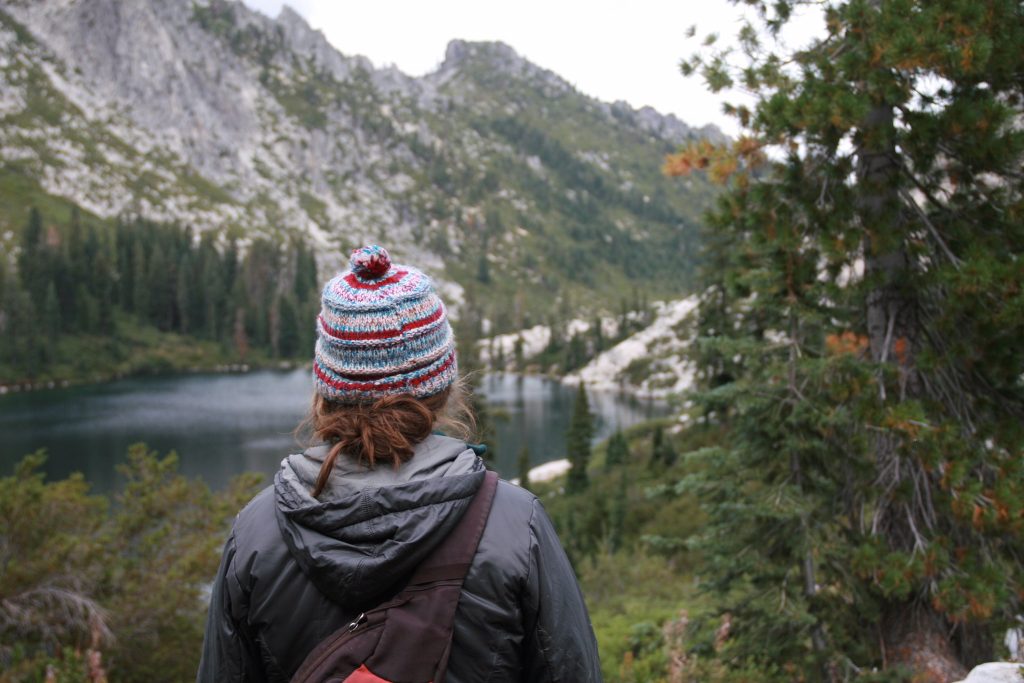By Evan Bright, Intern Holland-Hope College Sustainability Institute
As the leaves fall, we know that the season of “gifting” will be upon us before we know it. Folks will flock to stores to check off gifts for family and friends, one by one. The holiday season can include an obligation of generosity, where if we expect something from someone, we better be sure to get that person something.
But this mentality seems to uproot the true meaning of a gift. In her book, “Braiding Sweetgrass” author Robin Wall Kimmerer describes an alternate style of gift giving. Kimmerer speaks of learning from wild strawberry plants what it means to gift the right way. She recalls running through fields in search of wild strawberries, hoping to find the sweet little gifts that the bushes provide.
Gifts cannot be earned nor deserved, according to Kimmerer. They can simply be received with gratitude and the understanding that the sentiment will be reciprocated when the time is right. “Gifts,” she explains, “exist in a realm of humility and mystery – as with random acts of kindness, we do not know their source.”
Gifting, as she describes it, is about forming a relationship of “reciprocity.” Kimmerer recalls watching the strawberry plants send out runners, working to reproduce. She describes clearing out small patches of ground where these runners touched down, anticipating the new plant that would begin to grow. She appreciated the gift that the strawberry plants had given her, so she gave back when the opportunity arose.
This sort of reciprocal relationship will lead to a continual cycle of giving, and from that, mutual flourishing can ensue.
This idea of reciprocity can be applied to almost any area of life. Instead of viewing an interaction with a coworker as simply a transaction, we can shift our mindset toward finding a full cycle of gifting.
We should not always expect something immediately in return, but we should notice the opportunities we have throughout every day to gift to those around us.
With that in mind, reciprocity should be a foundational idea when it comes to environmental sustainability. We are gifted in infinitely many ways each day by water, vegetables, tulips, and sunshine.
Do we respond with chemical pollutants, wasting fresh water, and filling landfills with plastics? Or do we “gift” the environment with careful treatment and sustainable practices?
Where is the appreciation? We often act as though we deserve what nature gives us without ever considering how fortunate we are, or how to give back. The idea of reciprocity would demand our gratitude, with the expectation that we are forming a relationship of mutual gifting.
Likewise, our reciprocity with others in this holiday season can be more sustainable. We can shift the focus from simply going to the store and checking off a list. Instead, consider a gift that will build up a relationship. Doing something for someone, or with someone, is a wonderful way to show them that you value them.
A gift involving time and activity will much more likely lead to mutual flourishing than just buying that newest tech item and wrapping it nicely. Instead, give your time and energy to build a relationship when you are able. We can learn a lot from the hard-working, ever-giving plants.

things like joy and awe, as well as fresh air and clean water and in turn, can give back by not misusing it.
Evan Bright is an intern with the Holland-Hope Sustainability Institute, a proud Holland-area native, and a Hope College math major graduating in December 2019.
This Week’s Sustainability Framework Theme
Community & Neighborhood: The places we live and the individuals we interact with support the development of our personalities and perspectives on life. Encouraging vital and effective communities is essential.
ABOUT THIS SERIES
Living Sustainably is a collection of community voices sharing updates about local sustainability initiatives. It is presented by the Holland-Hope College Sustainability Institute, a joint project of Hope College, the City of Holland and Holland Board of Public Works. Go to www.hope.edu/sustainability-institute for more information.

